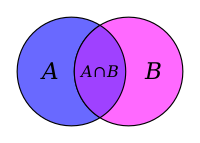
Photo from wikipedia
Axiomatic fuzzy set (AFS) theory facilitates a way on how to transform data into fuzzy sets (membership functions) and implement their fuzzy logic operations, which provides a flexible and powerful… Click to show full abstract
Axiomatic fuzzy set (AFS) theory facilitates a way on how to transform data into fuzzy sets (membership functions) and implement their fuzzy logic operations, which provides a flexible and powerful tool for representing human knowledge and emulate human recognition process. In recent years, AFS theory has received increasing interest. In this survey, we report the current developments of theoretical research and practical advances in the AFS theory. We first review some notion and foundations of the theory with an illustrative example, then, we focus on the various extensions of AFS theory for knowledge discovery, including clustering, classification, rough sets, formal concept analysis, and other learning tasks. Due to its unique characteristics of semantic representation, AFS theory has been applied in multiple domains, such as business intelligence, computer vision, financial analysis, and clinical data analysis. This survey provides a comprehensive view of these advances in AFS theory and its potential perspectives.
Journal Title: Wiley Interdisciplinary Reviews: Data Mining and Knowledge Discovery
Year Published: 2018
Link to full text (if available)
Share on Social Media: Sign Up to like & get
recommendations!